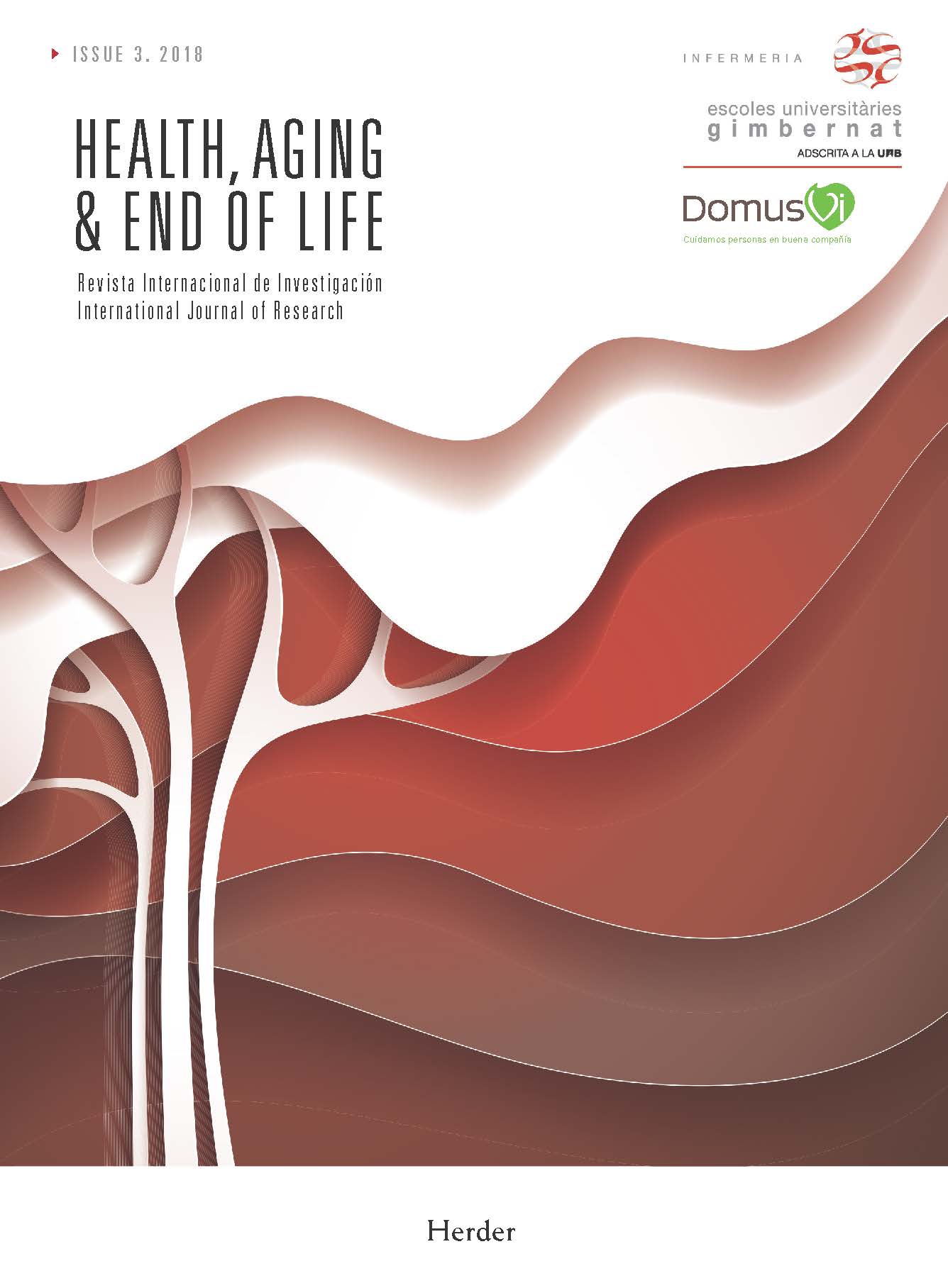Abstract
Patient care not only entails the obligation to cure the disease, but also the alleviation of suffering (Cassell, 1982). However, suffering is a subjective experience, which makes it difficult to assess. Bayés et al. (1997) consider the subjective perception of the passage of time in patients with advanced diseases as an indirect measure of it. Currently, there is extensive literature recommending its use as a simple evaluation tool, although there are few studies that provide scientific data on suffering valued with this instrument (Jurado et al., 2010).
The present study aims to provide evidence on the clinical usefulness of subjective perception of time as an indirect measure of suffering, in the context of patients with advanced disease, both oncological and non-oncological.
Results show that a prolonged experience of subjective time, in oncological and non-oncological patients in the end of life, indicates worse adaptation to disease, lower mood and higher level of discomfort.
It seems, therefore, that assessing the subjective perception of the passage of time can be useful as a screening measure, to adapt health and psychosocial care to each patient’s needs in order to help them to manage their disease. Training health professionals in its use would allow to introduce it in the usual clinical context within the health professional-patient relationship.
References
Bayés, R., Limonero, J.T., Barreto, P. y Comas, M.D. (1997). A way to screen for suffering in palliative care. Journal of Palliative Care, 13 (2), 22-26.
Bayés, R. (1998). Psicología del sufrimiento y la muerte. Anuario de Psicología, vol. 29, no 4, 5-17.
Bayés, R. (2000). Algunas aportaciones de la psicología del tiempo a los cuidados paliativos. Medicina paliativa, 7 (3), 101-105.
Bayés, R., Limonero, J.T., Romero, E. y Arranz, P. (2000). ¿Qué puede ayudarnos a morir en paz? Medicina Clínica, 115 (15), 35-38.
Benito, E., Maté, J. y Pascual, A. (2011). Estrategias para la detección, exploración y atención del sufrimiento en el paciente. Actualizaciones, 18 (7), 392-400.
Cassell, E.J. (1982). The nature of suffering and the goals of Medicine. The New England Journal of Medicine, 306, 639-645.
James, W. (1890). Principles of psychology. New York: Holt.
Julião, M., Oliveira, F., Nunes, B. y Barbosa, A. (2013). Time and Life Perception in the Terminally Ill: Its Utility in Screening for Depression. Journal of Palliative Medicine, 16 (11), 1-5.
Jurado, M.A., Esteve, R. y Villalba, O. (2010). Causas de sufrimiento en enfermos oncológicos al final de la vida. Medicina Paliativa, 17 (2), 90-95.
Krikorian, A. (2008). Valoración del sufrimiento en pacientes con cáncer avanzado. Psicooncología, 5 (2-3), 257-264.
Maté, J., Bayés, R., González-Barboteo, J., Muñoz, S., Moreno, F. y Gómez-Batiste, X. (2008). ¿A qué se atribuye que los enfermos oncológicos de una unidad de cuidados paliativos mueran en paz? Psicooncología, 5 (2-3), 303-321.
Rodríguez-Morera, A., Roca, R., Planes, M., Gras, M.E. y Bayés, R. (2008). Percepción subjetiva del paso del tiempo en el enfermo y el cuidador primario en Cuidados Paliativos hospitalarios. Medicina Paliativa, 15 (4), 200-204.
Van Laarhoven, H.W., Schilderman, J. y Verhagen, C.A. (2011). Time perception of cancer patients without evidence of disease and advanced cancer patients in a palliative, end-of-life-care setting. Cancer nursing, 34 (6), 453-63.

